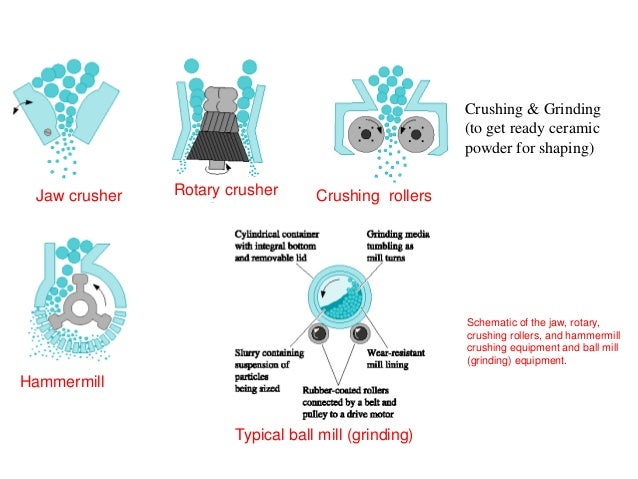Applicable for finenesses from 2 5 to 70 µm d97.
Ceramics advantages of the jet mill.
Ceramic decor items dishes and building materials add unique and personal touches to any home.
Typical operating advantages are.
Jet mills can be designed to output particles below a certain size while continuing to mill particles above that size resulting in a narrow size distribution of the resulting product.
Size reduction is done by impact as the balls drop from near the top of the shell.
Micronization is a term used to describe size reduction where the resulting particle size distribution is less than 10 microns.
Ball mills can operate in either a wet or dry state.
P ulverization takes place in the central chamber of the micron master jet energy mill as the process material is driven at near sonic velocity around the perimeter of the toroidal chamber by multiple jets of air or steam.
Alpine spiral jet mills are frequently used in the pharmaceuticals industry and also for the manufacture of fine grade chemicals for ultrafine size reduction of dry materials with a crystalline structure up to a mohs hardness of 3.
There are no moving parts to.
Particles leaving the mill can be separated from the gas stream by cyclonic separation.
The main advantage of a jet mill over other kinds of mills is that you can grind a friable or crystalline material to 1 10 microns average particle size and classify in a very narrow particle size range at the same time.
A ball mill consists of a hollow cylindrical shell rotating about its axis.
How dose a jet mill work.
This article aims to describe the working principle of a jet mill.
Grinding media comes in many shapes and types with each having its own specific properties and advantages.
This classifier enables the conjet to achieve highest finenesses independent of the product load and therefore also highest throughput rates.
Size reduction is the result of the high velocity collisions between particles of the process material itself.
The conjet high density bed jet mill is a spiral jet mill combined with a patented dynamic air classifier.
What advantages does a jet mill have.
Several of the industry s most sizable players have caught on to the benefits of ceramics in aerospace design too.
From general electric to united technologies safran boeing and rolls royce more than 8 000 patents for aerospace design with ceramics have been granted since the early 1980s according to american machinist.
While milling without any added liquid is commonplace adding water or other liquids can produce the finest particles and provide a ready to use dispersion at the same time.
The advantages of ceramic over other materials are numerous and although there are some downsides to the use of this material as a whole it is a product which is is extremely compatible with maintaining a clean carefree and safe household and lifestyle.
A jet mill grinds materials by using a high speed jet of compressed air or inert gas to impact particles into each other.
A jet mill also called fluid energy mill is used for solid material micronization.

